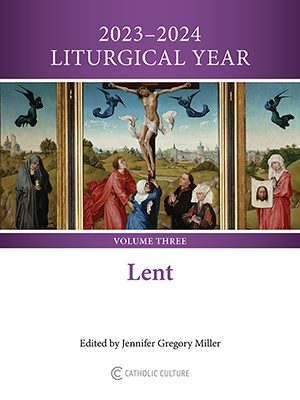can't we all just get along?
By Diogenes ( articles ) | Mar 25, 2004
What is it about "faithful orthodox Catholics" that makes so many of them talk as though despair and anger are the first and only characteristics of the Truly Christian life?
Several blogs have recently raised the question of why orthodox Catholics so often froth at the mouth when the subject of liturgical abuse is raised, why so many of us stumble out of Mass nearly sick with rage, so that we shock and repel those around us.
As a man who very often prays to be distracted during Mass so as not to take a machete to the celebrant, and as one who spreads alarm and despondency among nearly all he meets after leaving church, I feel I'm qualified to speak to the question.
What exasperates and maddens me about liturgical abuses is that the Mass given to us by the Church is so supremely, eminently DOABLE. Almost any priest not in a concentration camp or on a battlefield can do what the Church asks him to do with perfect compliance. It's all there: wear this; say that; bow here; now rinse your hands; now elevate the host
That means that the departures happen for a reason. The innovator wants to jack us around for motives of his own, which he does not "covenant" with us. I almost never hear complaints about occasional inadvertent omissions by celebrants trying to do it right; it's the deliberate changes that infuriate.
I once read an article in a lefty newsletter called Miriam's Song that laid out the campaign very neatly. The author noted how, on the campus of Ohio State, students would not keep to the sidewalks but take the most direct route between buildings, thereby wearing out a footpath in the grass. Eventually the grounds crew would acknowledge the fait accompli and lay a concrete sidewalk over the course already marked out by pedestrians who didn't stick to the "approved" ways. The author used this as an analogy to encourage her readers to "make a path by walking on it" in the liturgy
It's not as if the Mass established by the Church
Hence the unfairness of it when the celebrant himself departs from the rubrics, even quite peripheral ones, to "make a path by walking on it." When Father suggests in the vestibule that I'm guilty of pushing a private agenda by asking for a kosher Mass I had no part in making; when he tells me the Mass of the missal is "not good liturgy" or "not the tradition of our local faith community"; when my only alternative is to keep silent and let him score out his path a little more securely
And that's not conducive to spiritual repose.
All comments are moderated. To lighten our editing burden, only current donors are allowed to Sound Off. If you are a current donor, log in to see the comment form; otherwise please support our work, and Sound Off!








